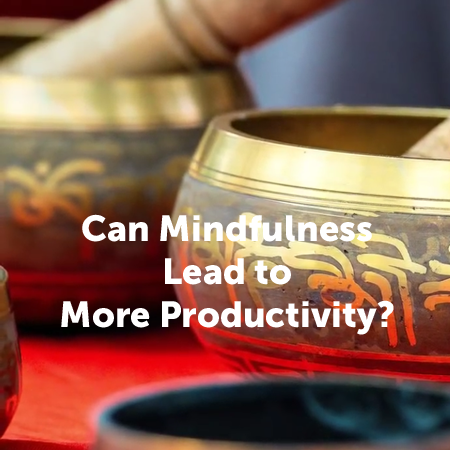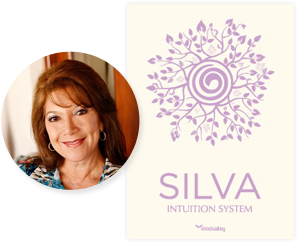 Mindfulness
Mindfulness
Can the power of mindfulness lead to more productivity? Well, I can answer that question in one word: absolutely! And what does it take to harness the power of mindfulness to be more productive? It takes only three things: practice, practice, practice.
So the question boils down to how do we practice? The most basic practice is to pause, take a breath (perhaps a very deep breath) and notice how it feels to you in the present moment. Then take another breath. And another… until you feel really present. You can also notice how this feels in your body.
Mindfulness is moment to moment loving awareness of what is going on right now, in the present moment non-judgmentally. Dr. Jon Kabat-Zinn, founder of Mindfulness Based Stress Reduction (MBSR) defines mindfulness as
“Mindfulness is paying attention in a particular way: on purpose, in the present moment, and non-judgmentally.”
He often adds, “…as if your life deepened on it and it usually does!”
Sharon Salzberg, one of the pioneers who brought mindfulness to the US says:
The main function of mindfulness is to be the platform for insight or understanding—it’s changing our relationship to everything so we can see deeply what our experience actually is, who we actually are, and where happiness actually comes from. Mindfulness is a quality of attention where our perception of what’s happening is not so distorted by bias—we don’t have so many assumptions running or a big agenda going—and we’re not so guided by what we hope or fear. We can see things more clearly, because even if those veils arise, we don’t have to get caught in them. We see them, and we can relinquish them more easily and come back to the moment.
There are four aspects of mindfulness that give you a real sense of what it means experimentally:
- The first is that mindfulness is about seeing things just as they are without adding thoughts, feelings and emotions to them.
- The second aspect relates to the first and it is learning to be here in the present moment.
- The third aspect is to realize the insight of impermanence and to notice how things change from moment to moment.
- The fourth aspect is not to judge your experience of compare yourself to others. We all have our difficulties and our triumphs and when we judge our experience, we lose our mindfulness.
Some Benefits of Mindfulness
Clinical trials and other scientific studies have validated that mindfulness has some major benefits for people who take the time to experiment with the various practices offed on this site. Some of these are explained here.
Probably the best known benefit is stress reduction from the MBSR training at the University of Massachusetts back in 1979! Mindfulness practices have been shown to reduce stress levels by promoting relaxation, reducing the production of stress hormones like cortisol, and enhancing resilience to stressors. Even taking on long deep breath can generate what I call a Mindfulness Break! Sometimes this is all that it takes to become grounded again in the present moment.
Another benefit is improved mental health. Research indicates that mindfulness can help alleviate symptoms of anxiety, depression, and other mood disorders by fostering a greater sense of emotional balance, acceptance, and self-awareness. This can lead to more understanding of the nature of the mind and better understanding of your human experience.
A third benefit is enhanced cognitive function. Mindfulness has been linked to improvements in cognitive functions such as attention, memory, and decision-making. Regular practice can enhance focus and concentration while reducing mind-wandering. This includes a sense of compassion for the thinking mind.
A fourth benefit is better emotional regulation. Mindfulness cultivates an awareness of emotions as they arise, allowing individuals to respond to them in a more skillful and adaptive manner. This leads to greater emotional regulation and reduced reactivity. You can train yourself to respond to difficult situations instead of reacting to them, thereby staying emotionally stable.
MBSR studies have shown that pain becomes more manageable. Mindfulness-based interventions have been found to be effective in reducing both the intensity and perception of chronic pain. By changing the brain’s response to pain signals, mindfulness can offer relief for various pain conditions.
Mindfulness has been shown to result in improved sleep quality. Practicing mindfulness can promote relaxation and reduce insomnia symptoms, leading to improved sleep quality and duration. Mindfulness techniques help calm the mind and body, facilitating better rest.
Evidence research has shown that meditators have more working memory, attentional flexibility, and overall brain connectivity than non-meditators.
There are many more benefits that have been explored and these are what I consider to be the most important. Who, in their right mind, would not want to reduce stress, have better mental health and have less pain in their lives.
What Mindfulness is Not
There are tons of misconceptions about mindfulness out there and I want you to understand some of the top ones. For example, many people think that mindfulness is just relaxation. This misconception can prevent you from recognizing the depth and transformative potential of mindfulness practice beyond simply inducing relaxation. Yes, mindfulness can include relaxation, but this is not the primary purpose.
Another misconception is that mindfulness is only about meditation. Believing this misconception may limit your exploration of incorporating mindfulness into daily activities and experiences beyond formal meditation sessions. This is about bringing mindfulness in our daily life and to do all our activities with a strong sense of presence. When we wash the dishes, we only wash the dishes. We don’t wash our problems, worries or other concerns. When we fold the laundry, we just fold the laundry. When we make the bed, we just make the bed. We don’t leave our problems in our bed. We examine them with the insight of mindful loving awareness.
A third misconception is that mindfulness is about emptying the mind. This misconception can lead to frustration and misunderstanding, as mindfulness involves observing the body, sensations, feelings and thoughts without trying to suppress or eliminate them. The practice is to be present to life just as it is.
Productivity
So what does mindfulness have to do with productivity? The first thing to notice about this is that like in some lotteries where you can win millions of dollars, “You must be present to win!” So the first thing about mindfulness is to be there. For example, if you go to a sporting event like the recent Superbowl which my home team lost in the last minutes, you find yourself immersed in the excitement of the game and you are not thinking about you worries, your problems, your debts. You are just there, experiencing the excitement of the moment. Your emotions flutter from great happiness when your team scores and moderate sadness when the other team scores. With mindfulness, you can always be on the winning team – your life, your presence, your happiness, your joy.
So what’s the problem with being mindful in everything that you do? Possibly when you are washing the dishes, you are not just washing the dishes. You are probably washing you financial problems with the dishes. Perhaps you are washing the argument you had with your boss or your spouse. How about simply washing the dishes to wash the dishes? How about folding the laundry just and only to fold the laundry? How about just walking by the creek when you are out in nature instead of bringing your problems, your worries and your bad feelings on the walk?
When these practices began to take hold in my life, I became happier and happier. For example, when I walk, I practice “walking meditation”. This doesn’t mean that I get lost in myself. It means that I am totally aware of my surroundings – the people I pass, the flowers along the side of the path, the birds in the creek and in the trees, and all the other wonders of life available in the moment. I noticed that 85% of the people I greeted returned the greeting, most of them smiling. I pass them and wish that they be free.
The major benefit of mindfulness in productivity is the way we handle communication and collaboration. Compassionate listening and mindful speech are the major practices that we can develop. This boils down to deep listening and loving speech.
Deep listening is the process of paying attention to whomever is speaking without planning what you are going to say. We concentrate our full awareness on the speaker and then formulate our response. Practicing this way eliminates the necessity of repetition and promotes a close relationship to the speaker. It also reduces the possibility of you becoming triggered and leaving the conversation mentally. Be wiling to be surprised and learn something new and listen with your whole self.
Mindful speech is speaking truly from your own personal experience while restraining from false speech, abusive speech, idle chatter and divisive speech. At the same time, we use words that inspirte confidence and stick to the subject of the communication without going into long-winded stories about our lives. It is also important to refrain from blaming or shaming another while giving useful feedback. If necessary and requested, keep all that you hear to yourself and ask first to comment on sensitive material.
If you are someone who take the floor very often, try stepping back and letting others come forward. This encourages full participation of the people who are there. If you deny the impact of something said by focusing on intent, it is often more destructive than the initial interaction.
Be careful of attending mindfully to what you intend to communicate so that you impact does no harm to anyone.
Mindfulness can help you and your colleagues set clear goals and objectives to align their creativity and efforts towards achieving them. You might think that taking time out to do a mindfulness practice will cut into your use of time for your work, but the opposite is true. You develop the skills to not be distracted and learn to focus more efficiently on the job to be done and in your home life. I also experienced a jump in my skill and competence when I brought mindful loving awareness to creating software to analyze Microsoft protocols back in 2004 when the DOJ sued Microsoft. This software was taken over by Microsoft and they converted it from PHP to C#.
Mindfulness aids in creating motivation and increases engagement by the simple act of being present for what is happening in your work situation. The power of presence (read: mindfulness) allows you to concentrate more fully and get the work accomplished in a shorter period of time. The ultimate result of this is that your work and your life are more in balance.
Dana
“Dana (pronounced “daa-nuh”) is the Pali word for giving. Dana is the first perfection of the heart (parami), and the foundation of Buddhist practice, based in the understanding that giving opens the heart, creates connection to others, and teaches letting go.
“According to the Buddha, generosity and sharing of resources is a central pillar of spiritual life, the foundation of wholesome kamma—action that bears fruit in our lives and the lives of others. Dating back to the Buddha and the first monastic practitioners, those who preserve and offer the teachings have always lived in interdependence with the community around them. Buddhist monks and nuns rely completely on the generosity of lay people for support in continuing their teaching and spiritual life.” – Spirit Rock
These classes are offered in the spirit of generosity. They are offered freely and donations are gratefully accepted. By offering dana, you show gratitude, support the teacher and the Thich Nhat Hanh Foundation in honor of his recent passing.
Support Information
For support, please write Jerome Freedman, jerome@mountainsangha.org.






Speak Your Mind
You must be logged in to post a comment.